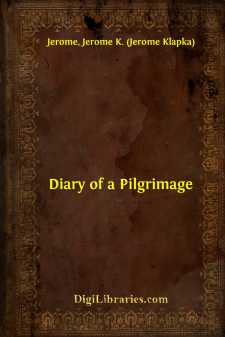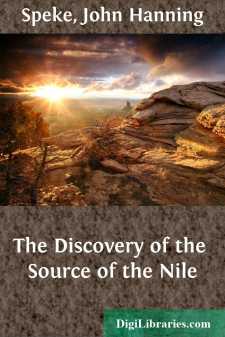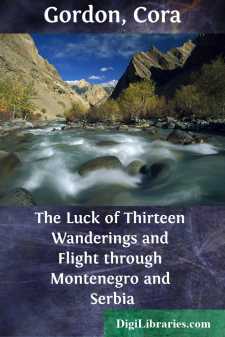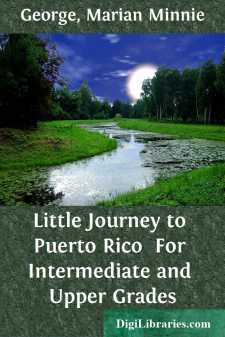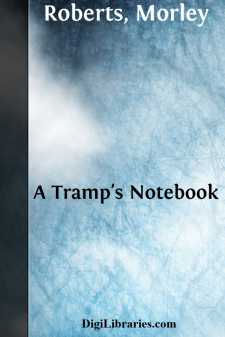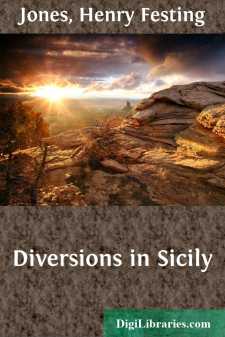Travel
- Africa 29
- Alaska 3
- Asia 46
- Australia & Oceania 26
- Canada 31
- Caribbean & West Indies 5
- Central America 1
- Europe 151
- General 39
- Maps & Road Atlases 1
- Mexico 10
- Middle East 18
- Polar Regions 7
- Reference 11
- Restaurants 1
- Russia 6
- South America 16
- United States 71
Travel Books
Sort by:
PREFACE Said a friend of mine to me some months ago: “Well now, why don’t you write a sensible book? I should like to see you make people think.” “Do you believe it can be done, then?” I asked. “Well, try,” he replied. Accordingly, I have tried. This is a sensible book. I want you to understand that. This is a book to improve your mind. In this book I tell you all about...
more...
by:
Wallace Morgan
CHAPTER I ON JOURNEYS THROUGH THE STATESOn journeys through the States we start,... We willing learners of all, teachers of all, lovers of all.We dwell a while in every city and town ...—Walt Whitman. Had my companion and I never crossed the continent together, had we never gone "abroad at home," I might have curbed my impatience at the beginning of our second voyage. But from the time we...
more...
Introduction. In the following pages I have endeavoured to describe all that appeared to me most important and interesting among the events and the scenes that came under my notice during my sojourn in the interior of Africa. If my account should not entirely harmonise with preconceived notions as to primitive races, I cannot help it. I profess accurately to describe native Africa—Africa in those...
more...
by:
Cora Gordon
INTRODUCTION It is curious to follow anything right back to its inception, and to discover from what extraordinary causes results are due. It is strange, for instance, to find that the luck of the thirteen began right back at the time when Jan, motoring back from Uzhitze down the valley of the Morava, coming fastish round a corner, plumped right up to the axle in a slough of clinging wet sandy mud. The...
more...
by:
Basil Hall
PREFACE. The following work contains a Narrative of the Voyage to the West Coast of Corea, and the Great Loo-choo Island; an Appendix, containing Nautical details; and a Vocabulary of the Language spoken at Loo-choo. In drawing up the Narrative from journals written at the time, I have derived great assistance from notes made by Lieutenant H.J. Clifford, of the Navy. This officer obtained permission...
more...
[5] Last year had well advanced towards its middle—in fact it was already April, 1888—before Mr. Froude's book of travels in the West Indies became known and generally accessible to readers in those Colonies. My perusal of it in Grenada about the period above mentioned disclosed, thinly draped with rhetorical flowers, the dark outlines of a scheme to thwart political aspiration in the...
more...
A LITTLE JOURNEY TO PUERTO RICO Do you know what people mean when they speak of "Our New Possessions"? What are they? Where are they? Why are men, in the streets, in the shops, everywhere, talking about them? Why are the newspapers full of articles in regard to them? Why are our lawmakers at the capital devoting so much time and attention to them? Can you tell? Some of these things you can...
more...
by:
Morley Roberts
A WATCH-NIGHT SERVICE IN SAN FRANCISCO How much bitter experience a man keeps to himself, let the experienced say, for they only know. For my own part I am conscious that it rarely occurs to me to mention some things which happened either in England or out of it, and that if I do, it is only to pass them over casually as mere facts that had no profound effect upon me. But the importance of any hardship...
more...
CHAPTER I—THE BRIGADIER AND THE LOTTERY One wet Saturday evening in May I found myself at Castelvetrano consulting Angelo, the guide, about the weather. His opinion was that it would clear up during the night; I said that if it did we would go to Selinunte, and this confirmed his view; so, on the understanding that there was to be no rain, I appointed him padrone of the expedition and promised to...
more...
by:
Robert Kerr
CHAPTER IV. CONTINUED. CONTINUATION OF THE PORTUGUESE TRANSACTIONS IN INDIA, AFTER THE RETURN OF DON STEPHANO DE GAMA FROM SUEZ IN 1541, TO THE REDUCTION OF PORTUGAL UNDER THE DOMINION OF SPAIN IN 1581. SECTION XIII. Account of an Expedition of the Portuguese from India to Madagascar in 1613. Being anxious to find out a considerable number of Portuguese who were reported to exist in the island of St....
more...


